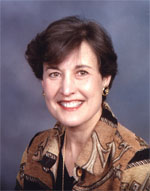HR Certification Institute: Strategic HR Thinking
Mary Power, CAE, executive director of the HR Certification Institute, tells CEO how the changing demands of human resources are evolving to include a greater focus on talent acquisition and retention.
‘Our people are our greatest resource,’ is a line trotted out so regularly by business leaders that its currency has been somewhat devalued. However, the competition for talent within an increasingly globalised marketplace means that even the most cynical of senior executives are starting to look upon this commitment as more than a mere platitude.
For Mary Power, CAE, executive director of the HR Certification Institute, the ageing workforce and unprecedented demand for talent has seen talent acquisition and retention become one of the most significant challenges any organisation will have to face. ‘There is a growing recognition that HR needs to be focused on strategic management and the person you bring in needs to understand how your vision can be leveraged through the talent at your disposal,’ she says.
This focus is mirrored by the way in which the concept of HR continues to evolve. No longer merely a question of compliancy and procedure, HR professionals are expected to be at the forefront of strategic thinking, matching hiring and training practices with the goals and development plans of the organisation. ‘HR professionals must be able to speak the language of business,’ Power explains. ‘We’re talking about the person or people responsible for delivering and nurturing your talent pool and you have to hire the right person in order to hire the right people.’ Recruiting for a role that continues to evolve is quite a challenge, but the HR Certification Institute is helping simplify the process.
Providing professional HR certification since 1973, the body now boasts over 98,000 certificants across 79 countries. In order to stay qualified, professionals re-certify every three years, ensuring they stay on top of the latest industry trends and requirements. ‘It means you’re relevant today,’ Power says. ‘We test experience-based knowledge that you can’t pass by learning formulas, so employers know they can trust us.’
International expansion
The launch of the Global Professional in Human Resources (GPHR) programme four years ago has vastly increased the organisation’s scope and has created the first global standard for HR professionals. Originally developed for HR practitioners from US-based companies practising cross-border, the programme proved so popular with non-US multinationals that the body of knowledge requirement was expanded last year to include the laws of the UK, EU, Canada, China and India.
‘We surveyed 10,000 HR practitioners working cross-border and looked for the overlap,’ Power notes. ‘86% dealt in these regions. When we do a review two years from now, I’m sure more areas will be added.’ The fact that all certification programmes are reviewed every three years ensures that the teaching stays relevant. An international representative has been added to the institute’s board and work is going into making employers aware of the benefits of the programme.
Setting a universal standard
‘If business leaders don’t understand what we’re doing, it loses value,’ says Power. ‘When employers are looking to recruit IT staff, they often look for potential candidates with an IT certification. This is because those candidates have proven that they possess the required knowledge and experience. Hiring managers often lack the in-depth knowledge and expertise to judge the most competent technologist, so an impartial third-party setting the standard is essential. HR Certification provides that same verification and ensures that anywhere within a global company there will be those who are certified to speak a common HR language.’
Working alongside leading assessment service provider Prometric, the HR Certification Institute has testing centres around the world. The GPHR certification follows the International Association for Continuing Education and Training guidelines and partnerships have been forged with international HR associations, business schools and colleges. There are already over 1,000 active GPHR certificants spread across the world.
Those undergoing the programme must meet a minimum level of eligibility, but do not necessarily require a HR job title; something Power believes will become more common as the appreciation for the role and its responsibilities continues to increase.
‘We’re finding that on the path to the top job, experience in HR is critical,’ she says. ‘People may enter the sphere from finance or operations, but you need these skills in order to progress.’ Through the HR Certification Institute, more people are acquiring these skills than ever before.

